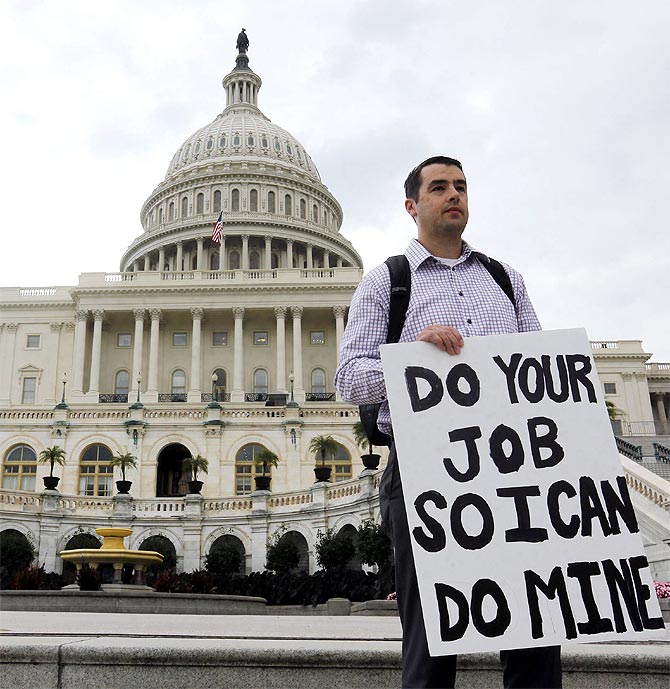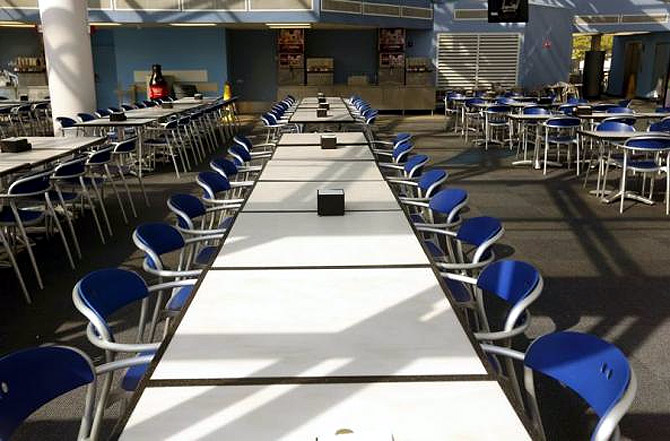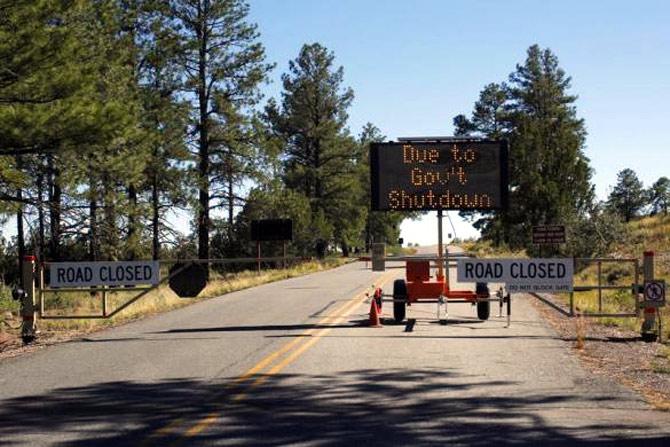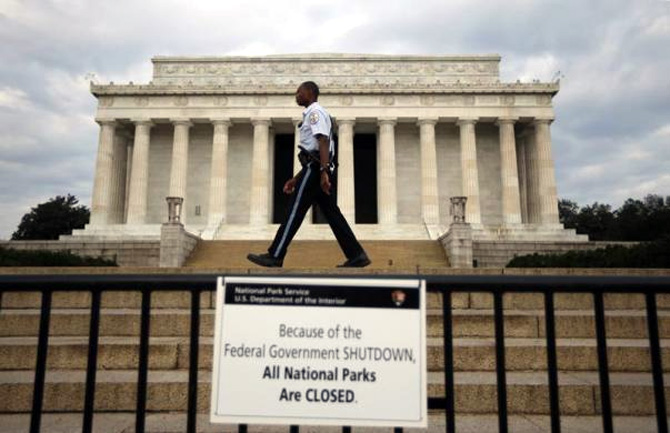 | « Back to article | Print this article |
US shutdown enters 4th day, Obama cancels trip to Asia
President Barack Obama on Friday cancelled his trip to Asia to attend two key summits due to the US government shutdown that entered its fourth day even as efforts to break the political standoff between Republicans and Democrats over the budget failed to make any headway.
Obama had already shortened the trip from four countries to two after the US government partially shut down as the two houses of Congress failed to agree on a new budget.
"Due to the government shut-down, President Obama's travel to Indonesia and Brunei has been cancelled. The President made this decision based on the difficulty in moving forward with foreign travel in the face of a shutdown, and his determination to continue pressing his case that Republicans should immediately allow a vote to reopen the government," White House Press Secretary Jay Carney said in a statement.
Obama was scheduled to depart for Indonesia for Asia Pacific Economic Conference tomorrow and then head to Brunei for the East Asia Summit.
Click NEXT to read more…
US shutdown enters 4th day, Obama cancels trip to Asia
"The cancellation of this trip is another consequence of the House Republicans forcing a shutdown of the government," Carney said.
"This completely avoidable shutdown is setting back our ability to create jobs through promotion of US exports and advance US leadership and interests in the largest emerging region in the world," he said.
Republican efforts to resolve the fiscal standoff that has closed much of the federal government heated up on the fourth day of the shutdown, with new talks over a broad budget deal and an effort by more moderate House members to break the logjam.
Tempers have flared and pressure appears to be mounting to resolve a stalemate that has shut large parts of the government, sidelined 800,000 federal workers and forced more than one million more to work without pay.
Click NEXT to read more…
US shutdown enters 4th day, Obama cancels trip to Asia
Republicans supported by Senators Rand Paul, Ted Cruz, Mike Lee, and Marco Rubio, refused to fund the federal government unless accompanied with a delay in the Patient Protection and Affordable Care Act, popularly known as "Obamacare", resulting in a government shutdown.
Senator Cruz and other Republicans believe Obama's signature domestic policy achievement is so bad for America that it is worth disrupting government funding to undercut it.
There were signs however, that some lawmakers were willing to work together to end the dispute. About 20 Republicans and Democrats signed on to a proposal that would reopen the government, finance it for six months and repeal the health care law's tax on medical devices, a provision that has bipartisan opposition.
The US also faces running out of money and defaulting on its debt if there is no agreement to raise government borrowing limits later this month.
Obama and his Treasury Department said failure to raise the nation's borrowing limit, expected to hit its $16.7 trillion cap in mid-October, could precipitate an economic nosedive.
Click NEXT to read more…
US shutdown enters 4th day, Obama cancels trip to Asia
A default could cause the nation's credit markets to freeze, the value of the dollar to plummet and US interest rates to skyrocket, according to a Treasury report.
With the government likely to exhaust its cash reserves by mid-October, the Treasury said being forced into non-payment of its debt would spark financial turmoil and possibly send the country back to recession similar to the one witnessed in 2008-2009.
"In the event that a debt limit impasse were to lead to a default, it could have a catastrophic effect on not just financial markets but also on job creation, consumer spending and economic growth," the Treasury report said.
The House on Thursday sought to relieve some of the pain caused by the shutdown by pressing forward with a series of small spending bills to reopen the parts of government deemed most politically sensitive, voting to fund veterans' programmes and pay inactive National Guardsmen and reservists.
Click NEXT to read more…
US shutdown enters 4th day, Obama cancels trip to Asia
Those bills followed measures to restart clinical trials at the National Institutes of Health, reopen national parks, monuments and museums, and allow the District of Columbia to maintain city services.
The US government closed non-essential operations on Tuesday after Congress failed to strike a deal on spending and budget due to differences over the Obamacare law, the signature healthcare programme of President Obama.
Republicans and Democrats are blaming each other for the impasse.
The shutdown has left nearly 800,000 employees on unpaid leave and closed national parks, tourist sites, government websites, office buildings, and more government establishments.




